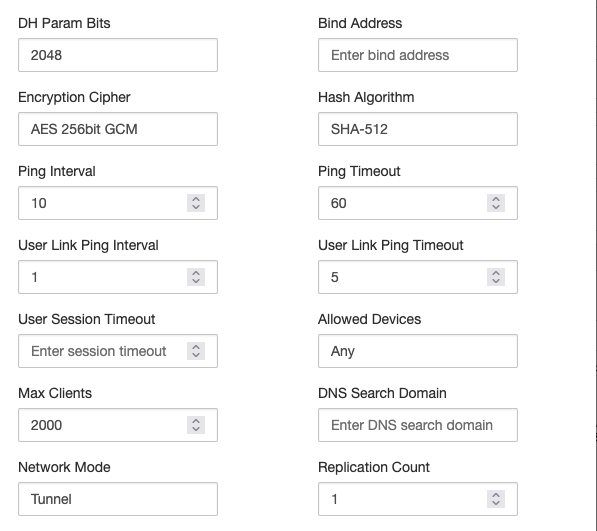Hello,
I’m facing issues that I’m not able to understand why they happen.
The setup I have is as follows:
AWS EC2 instance t3.micro with Oracle Linux 9 setup as it is described here but with Mongodb Atlas.
Server with subnet 172.16.0.128/29 and 3 peers that are attached to it using Group.
The issue I’m experiencing is as follows:
When initially connect all the peers to the server there aren’t any issues but once you disconnect any of the peers(no matter who) and try to reconnect it back again I’m facing the following error:
staging][2025-04-14 15:02:55,580][ERROR] User missing ip address
server_id = "67f91a72bb4fe5932cc45e0f"
instance_id = "67fd1f4be55d385c4c2f41c3"
user_id = "67f91a72bb4fe5932cc45df5"
multi_device = false
network = "172.16.0.128/29"
user_count = 6
Traceback (most recent call last):
File "/usr/lib/pritunl/usr/lib/python3.9/threading.py", line 937, in _bootstrap
self._bootstrap_inner()
File "/usr/lib/pritunl/usr/lib/python3.9/threading.py", line 980, in _bootstrap_inner
self.run()
File "/usr/lib/pritunl/usr/lib/python3.9/threading.py", line 917, in run
self._target(*self._args, **self._kwargs)
File "/usr/lib/pritunl/usr/lib/python3.9/site-packages/pritunl/callqueue.py", line 34, in _thread
queued = self.call(timeout=0.5)
File "/usr/lib/pritunl/usr/lib/python3.9/site-packages/pritunl/callqueue.py", line 25, in call
func(*args, **kwargs)
File "/usr/lib/pritunl/usr/lib/python3.9/site-packages/pritunl/clients/clients.py", line 1427, in _connect
auth.authenticate()
File "/usr/lib/pritunl/usr/lib/python3.9/site-packages/pritunl/authorizer/authorizer.py", line 154, in authenticate
self._callback(True)
File "/usr/lib/pritunl/usr/lib/python3.9/site-packages/pritunl/authorizer/authorizer.py", line 215, in _callback
self.callback(allow, reason=reason, doc_id=self.doc_id)
File "/usr/lib/pritunl/usr/lib/python3.9/site-packages/pritunl/clients/clients.py", line 1361, in callback
self.allow_client(client_data, org, user,
File "/usr/lib/pritunl/usr/lib/python3.9/site-packages/pritunl/clients/clients.py", line 883, in allow_client
self.get_virt_addr(org_id, user_id, mac_addr, doc_id)
File "/usr/lib/pritunl/usr/lib/python3.9/site-packages/pritunl/clients/clients.py", line 612, in get_virt_addr
logger.error('User missing ip address',
File "/usr/lib/pritunl/usr/lib/python3.9/site-packages/pritunl/logger/__init__.py", line 55, in error
kwargs['traceback'] = traceback.format_stack()
Another think that I’m observing as an issue is related to the time it takes for the server to understand that a peer has been disconnected - basically it takes approximately 5-10 minutes before the server realize that a peer is no longer connected to the server. Could you share your thoughts on this issues and tell me how can I solve them ?
